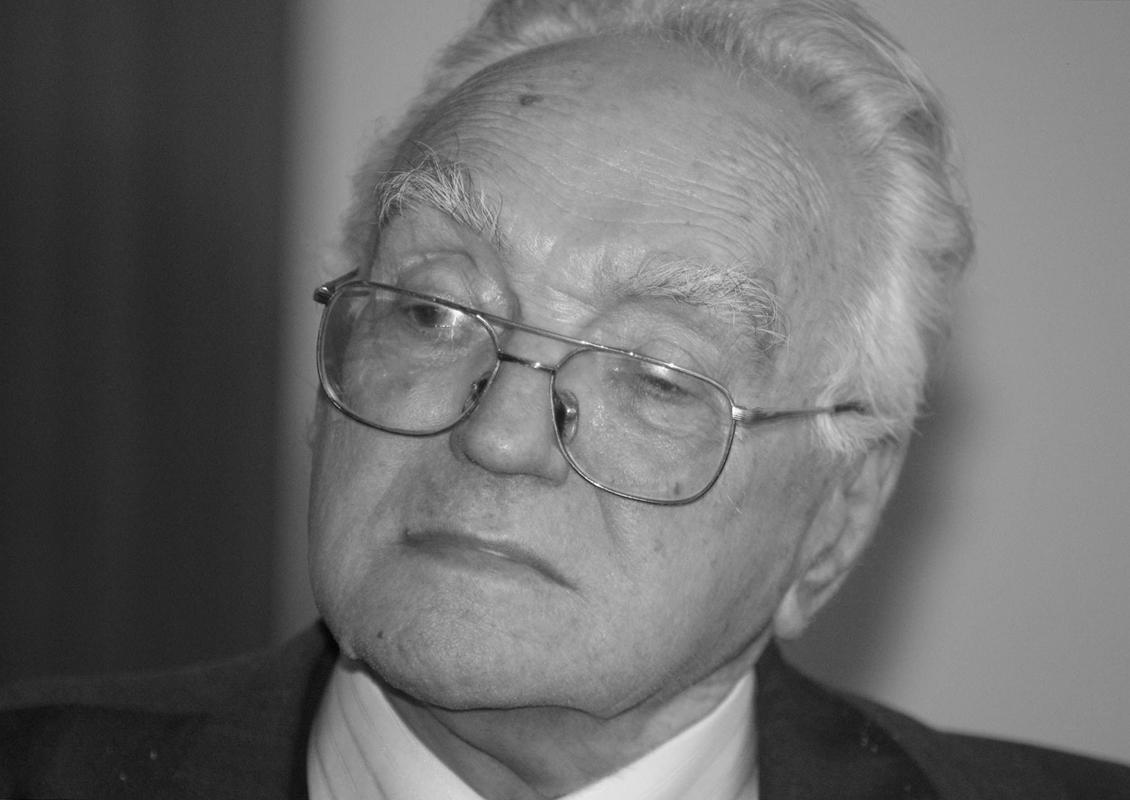Alojz Rebula, who continued to write well past his retirement, was part of the Slovenian literary scene in Trieste, just like Boris Pahor.
The past and present of the entire world
Rebula drew inspiration for his works from history, e.g. from antiquity, Biblical stories, the Middle Ages, and the present. “I explore the present through the past,” Rebula told the Slovenian Press Agency on his 90th birthday. He often stressed that he had always been interested in the past and present of the entire world rather than just the Trieste area.
Alojz Rebula was born in San Pelagio, Italy, on July 21, 1924. He attended high school in Gorizia (1936-1940) and Udine (1940-1944). In 1949, he took his degree in classical philology from the University of Ljubljana, where he also majored in archaeology and English.
He earned his doctorate degree in Rome in 1960 after completing his dissertation on Slovene translations of Dante’s “Divine Comedy”. He taught Greek and Latin at Slovene-language high schools in Trieste until he retired. Even though he was an eminent academic, writer, and translator, he usually introduced himself as a “retired high-school teacher”.
He wrote his first poems in Slovene, Italian, and Latin; however, he later stopped writing in Italian. At first, he wrote Expressionist poems but later switched almost entirely to prose.
In 1945, he published his first work of prose, “Vedež ob Jadranu”. His first collection of novellas, entitled “Vinograd rimske cesarice” (“Vineyard of the Roman Empress”), was published in 1956. He soon began exploring the theme of Slovenian national identity.
Art, the fate of small nations and travelogues
He later focused on history, using it to make sense of the present – with the aim of discovering the essence of the modern world and highlighting the importance of spiritual values. His works include short stories, novellas, novels on art and the fate of the Slovenian minority in Trieste, and reflexive diaries and travelogues. His most famous works are “Senčni ples” (“Shadow Dance”), “V Sibilinem vetru” (“In Sybil’s Wind”), “Divji golob” (“Wild Dove”), “Jutri čez Jordan” (“Tomorrow over the River Jordan”), and “Gorje zelenemu drevesu” (“Woe to the Green Tree”).
Many of his works were published by Mladika, a Trieste-based publisher of Slovene books, e.g. “Cesta s cipreso in zvezdo” (“The Road with the Cypress and the Star”) and “Nokturno za Primorsko” (“Nocturne for the Littoral”), for which he received the Kresnik Award in 2005.
A spiritual experience not based in mysticism
Rebula was considered a Catholic intellectual, and he continued to write for the Catholic weekly Družina well past his retirement. He wrote about existential and eschatological topics, and the inspiration for his writings was his faith, which, however, was not based in mysticism.
He was reinforced in his belief by his pilgrimage to Lourdes in the sixties. He said that he did not have any mystical experience there, but it was there that he was inspired by Archibald Cronin’s quote that went along the lines of: “Praying the rosary daily has saved me from many of life’s pitfalls.”



































































